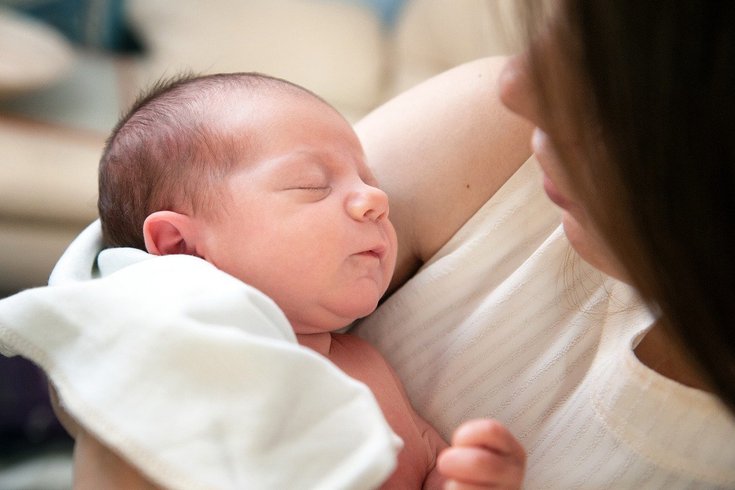
October 28, 2020
 Julia Bondarenko/Pixabay
Julia Bondarenko/Pixabay
Symptoms of postpartum depression can last for up to three years, according to a new study. It is important for health care providers to be asking new moms about depressive symptoms for at least two years, National Institutes of Health researchers say.
Postpartum depression can be hard to recognize, but it is a common experience among many new mothers.
About 1 in 7 U.S. women experience symptoms of postpartum depression, research has shown.
Despite such a high prevalence, some health care providers don't ask women about depressive symptoms during their postpartum visits. About 1 in 8 women surveyed by the Centers for Disease Control and Prevention said their health care provider never inquired.
Yet, according to a new National Institutes of Health study, postpartum depression may persist for several years.
The study of 5,000 women found that about 1 in 4 experienced high levels of depression during the first three years after birth.
Currently, the American Academy of Pediatrics recommends that pediatricians screen mothers for postpartum depression at their child's well visits at 1, 2, 4 and 6 months after childbirth.
The new findings, published in the journal Pediatrics, suggest that the screening should be extended for at least two years.
"Our study indicates that six months may not be long enough to gauge depressive symptoms," said Diane Putnick, a staff scientist in the National Institute of Child Health and Human Development's epidemiology branch. "These long-term data are key to improving our understanding of mom's mental health, which we know is critical to her child's well-being and development."
A new mother may have mood swings, crying spells and sleeping difficulties in the first two weeks after giving birth, as she adjusts to life with a newborn. This is referred to as the so-called "baby blues." Almost 80% of mothers will experience it.
Postpartum depression is more severe and longer lasting. Symptoms include a depressed mood or severe mood swings, excessive crying, difficulty bonding with the baby and withdrawing from family and friends.
New mothers with postpartum depression often feel worthless or ashamed, and worry that they aren't a good mother. Some will have thoughts of harming themselves or their baby.
In rare cases, postpartum psychosis can develop. The condition causes mothers to hallucinate or have delusions. Some may attempt to harm themselves or their baby.
There is no single cause of postpartum depression. It can be triggered by the hormonal changes that occur after delivery or by emotional issues, like feeling overwhelmed and alone.
Women with a personal or family history of depression, or those who have a multiple birth, a baby with special needs or relationships problems with their spouse or significant other, are at higher risk.
The NIH study found women with underlying conditions, including mood disorders and gestational diabetes, were more likely to have higher levels of depressive symptoms during the three-year period.
Postpartum depression makes it difficult for women to take care of themselves and their baby. If left untreated, it can affect them for a long time after the birth.
Though there may be less stigma associated with postpartum depression today, as more women feel comfortable opening up about their struggles, it can still be difficult to recognize. And many women don't know where to turn to help.
Health experts encourage women to open up to their obstetrician or primary care physician during their postpartum visits if they are struggling after the birth of their baby. Anyone with symptoms of postpartum psychosis should seek help immediately.
Women should not feel embarrassed to seek help, experts stress. Treatment for postpartum depression – usually a combination of cognitive behavioral therapy and antidepressants – is very effective.
Other good resources in the Philadelphia region include:
• The Maternity Care Coalition has a behavioral health program that identifies and treats perinatal depression in low-income mothers. It also identifies other mental health challenges, including post-traumatic stress disorder, anxiety and substance dependence. More information is available at (267) 514-6679.
• The Philadelphia Health Department's Community Action Network offers support groups, home visits and online resources.
• The Postpartum Stress Center in Rosemont, Montgomery County offers an array of postpartum services, including psychotherapy and support groups. More information is available at (610) 525-7527.
• Southern New Jersey Perinatal Cooperative offers an online support intervention, Mom Mood Booster, that connects women with a personal coach who provides non-therapeutic support and encouragement. It also offers support groups.